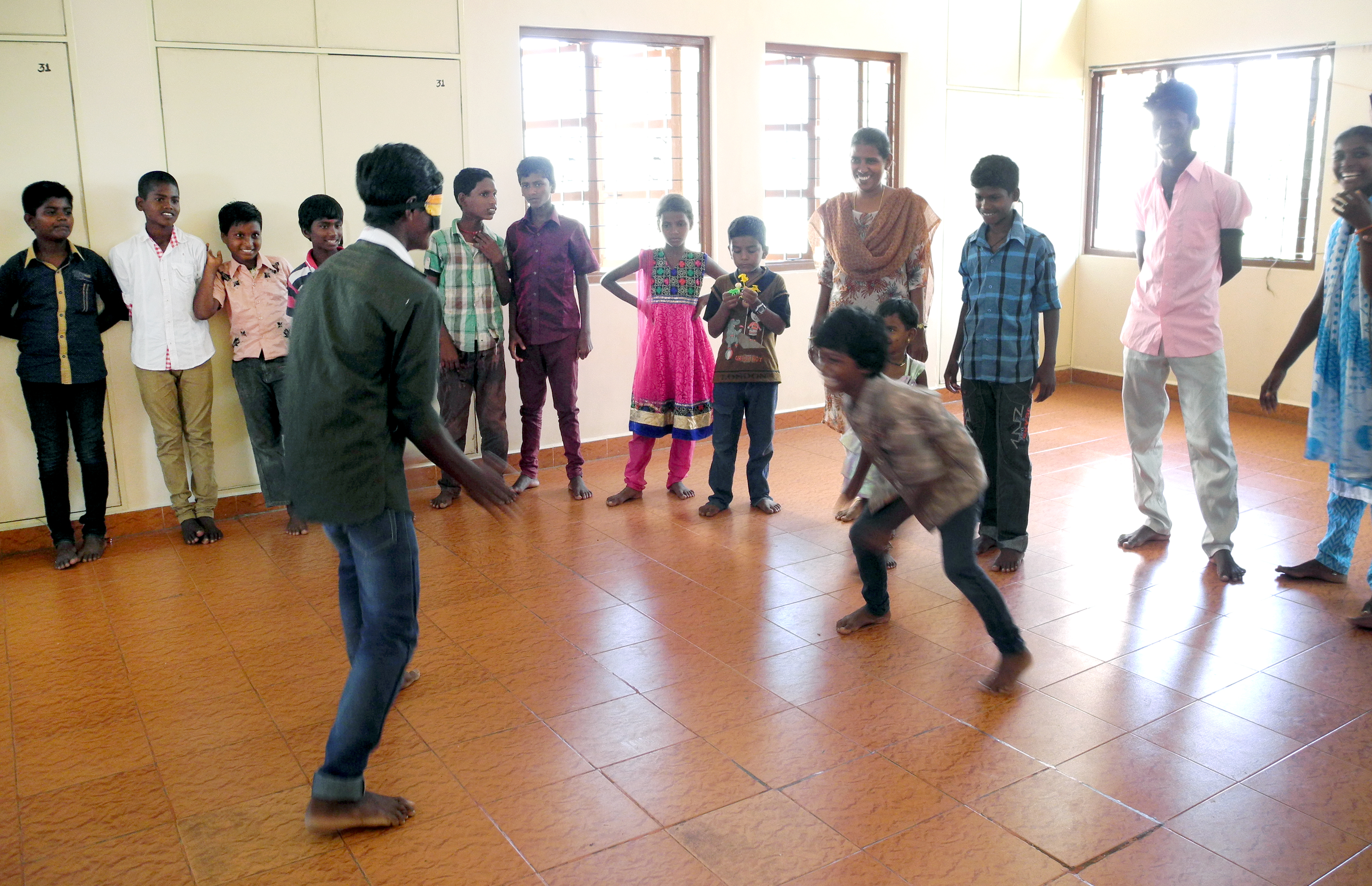“Anyone can give a solution if given a choice and a chance.” - Daya Lakshmi, Play for Peace trainer in India
Tamil Nadu, one of the southernmost states in India, is no stranger to poverty, caste discrimination, and violence. But according to Daya Lakshmi, a trainer with Play for Peace, things there are slowly beginning to change. Daya works in partnership with the Pearl Trust (Peoples Education for Action among Rural Landless), whose objective is to enable communities to develop their potential for creating a humanitarian society. They focus particularly on promoting women's equality and children's education. The Pearl Trust has been at work here for more than 12 years.
As Daya explains, the nomadic tribes of Bird Catchers and Snake Trappers in Tamil Nadu once had work that was needed by rural farmers. But once these practices were outlawed, these tribes had no legitimate work and thus had no social standing at all. Daya uses Play for Peace models and non-violent communication sessions to bring together youth in these communities. Here is how she describes a typical session: "Day 1 of a 2-day session started in the morning with a mixed group of about 40 kids, aged 10 to 18. They began by giving their names and a brief check-in of how they were feeling. They continued by playing a variety of games. Then I asked them to share their feelings; the kids were pleased that no one was left out and that they didn't need specific skills to participate.
"After a refreshment break (Pearl Trust provides this as many kids come from villages 1 to 2 hours away), they talked about their own, inner feelings and those they display on the outside. Several of the groups stated that feelings of anger and sadness are 'bad'. "Interestingly, some of the kids expressed that if they show compassion, they will be taken for granted. As we were discussing this and I brought up the idea of caring for our needs too, they began to see that showing compassion does not have to mean letting go of our own needs or taking care of ourselves. But this realization required time and patience.
"Another activity, Human Knot, was planned by the group cooperatively and guided by a 12-year-old boy. The entire group shared an increase in confidence, an understanding that not only adults come up with solutions, and an appreciation for listening to each other. "During that activity, one girl stopped the play because she recognized that another girl was in pain. I took the opportunity to speak with her, helping her to realize that she had shown compassion and did not at any time relinquish her power. It was heartening for the girl to see that she had made a conscious choice to speak up for someone else." Part 2 of this session will be posted next week.



